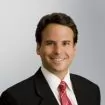800-Meter Champion Berian Eventually Outpaces Nike Endorsement Suit... Or Did He?
World 800-meter champion Boris Berian is seemingly capable of out-running just about anything these days. Berian is just a year removed from sprinting out of a McDonald's kitchen and into track lore – essentially trading a fry cook apron for track shorts and blowing away the competition en route to gold at the 2016 world indoor championships. Some months later, the American track star appears to have, at least for the moment, finally put some distance between himself and his former sponsor with the news last month that Nike has decided to drop its breach of contract lawsuit against the soon-to-be Olympian. So, why did Nike split with this up-and-coming track star?
The relationship between Berian and Nike started, as these things typically do, quite harmoniously. After an unexpected second place finish at the Adidas Grand Prix in June 2015, Berian, until then having attracted attention largely for his previous work as a McDonald's fry cook, caught the eye of several suitors hoping to sponsor him, ultimately selecting the Oregon shoe giant because it came in with the highest offer.
Yet just as quickly as runner and corporate sponsor fell in love, they puzzlingly split. As early as January 2016, Berian was spotted racing in New Balance gear. At the time, Berian's agent explained that his client's contract with Nike had expired and that any contractual restrictions against signing another footwear endorsement contract had lapsed.
If the middle distance champion thought he had left Nike in the dust, he was quite mistaken. In April, Nike dashed to court and filed a breach of contract lawsuit. (Nike USA Inc. v. Berian, No. 16-00743 (D. Or. filed April 29, 2016)). Berian was served with notice of the suit seemingly during the only time Nike could catch him: while the runner stood still and watched others compete at a track meet in Los Angeles.
In the complaint, Nike claimed that it had a right of first refusal to match a $125,000 sponsorship deal that Berian had signed with New Balance. Nike further alleged that it had exercised its right of first refusal and matched the New Balance offer, which included $125,000 a year plus a performance bonus, and that therefore Berian had breached the endorsement deal in eloping with New Balance. Nike further asserted that its offer was a match even if it contained reductions (which Nike stated are standard in track and field endorsement contracts) because the New Balance offer was only a brief term sheet (with omitted reductions) and not a complete contract. As a result of the alleged violation, Nike sought an order enjoining Berian from entering into an endorsement relationship with any Nike competitor and from competing while wearing or otherwise endorsing any Nike competitor's product. Nike claims that it would suffer irreparable harm if Berian is allowed to compete in a competitor's product, particularly in an Olympic year.
In a response in opposition to a motion for an expedited hearing and discovery on the injunction issue, Berian maintained that he had not breached the deal because Nike did not truly match New Balance's offer. The crux of Berian's argument focused on the insertion of the reductions clause in Nike's offer that allowed Nike to reduce Berian's compensation in certain circumstances relating to performance, as opposed to New Balance's offer, which did not contain any reductions.
Nonetheless, in early June, Nike obtained a temporary restraining order barring Berian from wearing New Balance products.
That temporary victory, however, came with rather limited fanfare, a reaction that perhaps served as an indicator of what awaited Nike, both in the courtroom and out. Inside the courthouse halls at oral argument, the judge set to rule on the injunction request reportedly appeared skeptical of the merits of Nike's case. That perceived skepticism also took the form of criticism in the court of public opinion, with members in the track community decrying the proverbial Goliath for singling out a modern-day David.
Within several weeks, however, Nike had changed course, deciding to drop the suit altogether, in the process adding another chapter to what had quickly become a tumultuous saga. Nike, while maintaining the validity of its breach claims, stated that it opted to drop the suit to eliminate any distraction for Berian who was preparing for the Olympic trials. Berian placed second in those trials and earned a trip to the Rio Olympics at summer's end. And he did so wearing a New Balance kit.
Ironically enough, Berian's performance in the trials means that the saga continues into the present.
Nike is the official sponsor of USA Track and Field and, as such, all track and field athletes representing the United States at the Rio Olympics will be outfitted in Nike-branded national team attire in competitions, award ceremonies, official press conferences, and other official team functions.
Berian's prize, then, for securing a trip to Rio by placing second at the trials?
Glory, sure. And a clean Nike uniform to don at the starting line.
Would Anyone "Remember the Titans" If Coach Boone's Pre-Game Speeches Were Not Private? A Top Texas Court Set to Weigh In
There are few places in life where we expect privacy. A doctor's office. One's own home. And one might also think of a sports locker room as a place where a pre-game speech may be given without public scrutiny. However, a recent Texas case throws doubt into just how much privacy coaches at public schools should expect in their locker rooms.
In Long v. State, 469 S.W.3d 304 (Tex. Ct. App. 2015), the Texas Court of Appeals held that a public school basketball coach did not have a reasonable expectation of privacy that his halftime and post-game locker room speeches would not be surreptitiously recorded. This was good news for Wendee Long, who had been convicted of violating the Texas wiretapping law by secretly recording her daughter's basketball coach locker room speeches to substantiate reports that he was verbally abusing the team.
Here's the instant replay. In 2011, Lelon "Skip" Townsend was hired as basketball coach for the Argyle High School girls' basketball team. Wendee Long, a school board member, heard reports that Townsend berated and belittled players during practice. On February 7, 2012, Long had her daughter (a former basketball team member) tape an iPhone to the inside of a locker in the locker room that the Argyle team was using during an away game. The iPhone recorded portions of Townsend's halftime and post-game speech (which, as an aside, apparently displayed no evidence of any verbal abuse). Long then distributed the recording to the school's assistant principal and other members of the school board.
The recording eventually made its way to the superintendent, who was apparently not a fan of the private taping and turned it over to the police. In June of 2012, Long was charged, among other things, under two provisions of Texas's criminal wiretap statute for intentionally recording and disclosing oral communications "uttered by a person exhibiting an expectation that the communication is not subject to interception under circumstances justifying that expectation." The jury agreed with the State, and in September of 2013 found Long guilty of unlawful interception of an oral communication. Long was sentenced to five years in prison (later reduced to three years' probation) and a small fine. Ouch.
Calling a timeout, Long appealed in October 2013. She argued that Coach Townsend's talks to the team were public speech, meaning he had no justifiable expectation of privacy in what he said, nor a justifiable expectation that his communication was not subject to interception. And on June 30, 2015, the Texas Court of Appeals agreed. The court determined that the Texas statute (much like the equivalent federal statute) only protects communications made under circumstances justifying an expectation of privacy. To make this determination, the court looks to two factors: First, did the person exhibit a subjective expectation of privacy? And second, if so, is that subjective expectation one that society is willing to recognize as reasonable?
The court reviewed the multiple cases holding that public school teachers have no reasonable expectation of privacy in the classroom setting. This is because communications in a classroom are expected to be overheard and repeated to other students, parents, and administrators. The court determined that, in this respect, a public school basketball coach is essentially the same as a teacher: they are both educators, aiming to train and prepare students for the future.
Therefore, the court held that society is not willing to recognize that a public school coach has a reasonable expectation of privacy in his or her instructional communications and activities "regardless of where they occur, because they are always subject to public dissemination and generally exposed to public view." The court rejected the State's primary argument that a coach is not like a classroom teacher because a coach's main goal is to achieve success in sports. It also rejected the argument that the nature of a coach's interaction with his team on game day is in a closed locker room, therefore making it private. Even if the locker room is technically a private space, the court still maintained that Townsend was providing educational instruction in a space occupied by student-athletes for the purpose of receiving instruction.
Because the court found that Townsend did not have a justifiable expectation of privacy in his halftime and post-game locker room speeches, Long was acquitted of the charges.
But don't sound the buzzer just yet. In July 2015, the State cried foul and appealed to the Texas Court of Criminal Appeals, the highest criminal court in Texas, seeking to have the appellate court's ruling overturned. The State maintains that the appellate court misconstrued the scope of the wiretap statute and that Townsend was entitled to an expectation of privacy. The high court heard oral argument on April 6, 2016, and has yet to rule.
Other than deciding whether Wendee Long will be a convicted felon, the court's final judgment will also help answer some thought-provoking issues. Should a parent have the right to hear all communications between a coach and a sports team? Does this really mean that planting a recording device in a school locker room is acceptable in all cases? Should public universities now be worried about who may be listening in on gameplay strategy? Will all inspirational pep talks now be in the public domain? Waiting on the sidelines, we will be watching for the court's answer to at least some of these questions.
Two Aces Snare Golf Course and Insurers in Lawsuit Sand Trap
It was any golfer's dream—sinking a hole-in-one during a contest with the reward of cash for fans seated in the grandstands and thousands given to the charity of his or her choice.
On July 2, 2015, at the Greenbrier Classic in White Sulpur Springs, WV, two golfers—George McNeill and Justin Thomas—realized that dream when both hit a hole-in-one, just hours apart. Fans erupted in cheers and James Justice, the owner of the Greenbrier Resort doled out about $200,000 in cash to eager onlookers. The tournament also gave McNeill and Thomas $25,000 and $50,000, respectively, for the charities of their choice.
As per its insurance policy, Old White Charities ("OWC" or "Old White"), the nonprofit group behind the Greenbrier Classic, made a claim for $900,000 for the two holes-in-one. However, the insurer denied the claim, and, in a subsequent lawsuit, the underwriters are seeking to drive a wedge in the arrangement and invalidate the policy to avoid paying out on the claim.
In August 2015, the underwriters filed a complaint for a declaratory judgment in the United States District Court for the Southern District of West Virginia seeking a declaration that OWC is precluded from recovering under the policy due to several deficiencies and misstatements in its application. (Talbot 2002 Underwriting Capital LTD v. Old White Charities, Inc., No 15-12542 (S.D. W. Va. filed August, 19, 2015)). According to the complaint, the policy required that the hole be at least 170 yards away from the tee. The insurers allege, however, that while OWC's application had stated that the hole in question played an average of 175 yards, the distance of the hole was only 137 yards from the tee when the two golfers scored the holes-in-one. The complaint also said that OWC had not paid its premium of about $100,000 by a July 1 deadline.
OWC shot back with a third party complaint in September 2015 against Underwriters at Lloyd's London ("Lloyd's"), HCC Specialty Underwriters, Inc. ("HCC"), and All Risks, LTD. ("All Risks") for compensatory and punitive damages, as well as both pre-judgment and post-judgment interest, and attorney fees. OWC alleges that HCC and All Risks acted as agents for Lloyd's in procuring the insurance policies at issue and should have to pay for their alleged bogey. (Talbot 2002 Underwriting Capital LTD v. Old White Charities, Inc., No 15-12542 (S.D. W. Va filed September 11, 2015)). OWC specifically alleges that the parties understood the yardage was variable, but never communicated to OWC that they added a 170-yard minimum requirement. In fact, OWC claims that since the PGA controlled pin placement, the 18th hole played at various distances during the tournament in question, ranging from 181 yards to 137 yards, for an average of about 170 yards. Moreover, OWC claims it was on par and had overnighted the policy premium a few days before it was due on July 1, and was told "the insurance was in effect for the event."
In response, All Risks attacked the pin by filing a motion to dismiss—arguing that under West Virgina law, a plaintiff may not recover against an agent of an insurer for breach of contract where the agent is not a party to the underlying contract. However, the court denied the motion, finding that OWC pled enough evidence that an exception existed. Specifically, the court ruled there was evidence that the agent, along with the insurer, created a reasonable expectation of insurance coverage, which permits a cause of action for breach of contract against an agent in West Virginia – in essence, that Old White could have reasonably believed that any holes-in-one hit during the Greenbrier Classic would fall within the 175-yard average set forth in their application and would thus be covered under the policies.
HCC had also tried to get out of the bunker with a motion to dismiss with a similar argument, but faced the same fate as All Risks' motion. (Talbot 2002 Underwriting Capital LTD v. Old White Charities, Inc., No 15-12542 (S.D. W. Va. April 19, 2016)).
Lloyd's and HCC asked for a mulligan on the judge's decision, but on June 10, the court deferred ruling on their contention that the court had erred in characterizing All Risk as their agent in writing the insurance policy at issue. (Talbot 2002 Underwriting Capital LTD v. Old White Charities, Inc., No 15-12542 (S.D. W. Va. June 10, 2016) (Order)). The judge said that it would be premature to grant such a ruling since discovery is ongoing and no party has filed a motion for summary judgment yet.
With discovery still ongoing, it appears that none of the parties are out of the woods, but we will be watching to see how the scorecard on this litigation ultimately turns out.
Foul Play or Sour Grapes?
Far from the gridiron and Super Bowl XIV, but still on the "field," former Los Angeles Ram Vince Ferragamo ("VF") has quarterbacked his way to a successful business venture with his Tentua di Ferragamo Winery. However, Ferragamo is now at risk of losing valuable terroir, as similarly named Italian luxury fashion outlet Ferragamo S.p.A. is suing him for allegedly infringing and diluting their FERRAGAMO trademark. ( Ferragamo S.p.A. v. Ferragamo Winery, No. 16-03313 (S.D.N.Y. filed May 4, 2016)). Ferragamo S.p.A., which first sent a cease-and-desist letter in July of last year, is claiming that the use of the Ferragamo name to sell wine is causing customer confusion and diluting their famous trademark. Ferragamo S.p.A. also uncorked additional causes of action alleging cybersquatting and state unfair competition claims, among others, and is seeking injunctive relief that would prohibit VF from using the Ferragamo name in connection with his winery.
Ferragamo S.p.A. is well-known as a luxury fashion company and retailer, primarily specializing in shoes and leather goods. But, like other fashion giants, Ferragamo S.p.A. has dipped its toes into the wine business in the past. Indeed, in the 1980s, Ferragamo S.p.A. apparently commenced selling wine in the United States. Ferragamo S.p.A.'s court filings include news clippings of its first wine – the Ferragamo Chianti Putto – with an accompanying tagline stating: "It is unusual for a woman to head a winery, but everything about this dynamic woman is unusual."
Though it subsequently discontinued selling wine in the U.S., Ferragamo S.p.A. alleges that it hoped to reintroduce wine products into the U.S. and had filed a trademark application in 2006, which signaled a desire to use the FERRAGAMO mark in connection with wine, sparkling wine, and distilled liquor and spirits. The application was unopposed, and the trademark, No. 3,431,280, was officially registered in 2008. Ferragamo S.p.A. also filed another application in 2012, which was also unopposed.
Meanwhile, VF first began to tackle the wine business in 2010, using Sangiovese and Cabernet grapes to create his first vintage, which he named after his daughter. In 2013, VF registered the FerragamoWinery.com domain name, which Tentua di Ferragamo Winery uses to sell and ship wine both to individual and commercial buyers.
Ferragamo S.p.A. alleges that VF's winery made unauthorized use of both its well-known luxury trademarks and wine-related marks in marketing its online wine sales, allegedly causing consumer confusion, creating a false affiliation with its Ferragamo S.p.A. and diluting its marks. One of the aspects of FerragamoWinery.com that is particularly bothersome to Ferragamo S.p.A. is the use of Tuscan photos and imagery. But, VF's family has actually owned a separate winery in Tuscany, "Il Borro", for over twenty years. Still, Ferragamo S.p.A. believes that evoking Tuscany to help sell California wine is a false start. It, moreover, advanced a claim for cybersquatting (i.e., the bad faith, abusive registration and use of the distinctive trademarks of others as domain names), arguing that the domain www.ferragamowinery.com was registered and used with a bad faith intent to profit from Ferragamo S.p.A.'s trademarks.
VF's first play from the huddle was to send a June 2016 letter to opposing counsel (which was also submitted to the court). In the letter, VF's attorney stated that S.p.A.'s complaint was "deficient" and "plead in bad faith to harass [Vince]." VF has also argued that the New York court is the improper venue for the dispute, and that the suit should have been filed in California, where Ferragamo both lives and runs his winery. VF contends that selling and shipping wine to New York is not sufficient to give New York jurisdiction over the case.
The court must first decide the issue of venue before moving forward. Assuming it does go forward, the court will have to decide if VF should have to fumble away his last name or whether the Tentua di Ferragamo name fits VF like a pair of Ferragamo shoes.
Ultimate Armwrestling League Flexes Its Legal Muscles over Use of Copyrighted Photo
The world of armwrestling has come a long way since the days of Lincoln Hawk (played by Sylvester Stallone) battling it out on the big stage in Las Vegas in the 1987 movie Over the Top. Multiple competitive armwrestling leagues now exist and the sport's popularity, both in viewer consumption and athlete participation, has steadily grown. Each league is similarly structured as a competitive armwrestling association consisting of set matches for monetary prizes.
In early April, one of the leagues, Ultimate Armwrestling League ("UAL"), brought suit against rival World Armwrestling League ("WAL") in California federal court complaining that WAL made unauthorized use of a copyrighted photograph of former UAL star Devon Larratt (Ultimate Armwrestling League LLC v. WAL Branding and Marketing LLC, No. 16-00642 (C.D. Cal. filed Apr. 6, 2016)).
During his time with UAL, the league asserts that it paid for and published a photo of Larratt, labeled "Devon Larratt Double Bicep," on its Facebook page in August 2013, and later posted the image on its website. In the photo, Larratt can be seen flexing his biceps in front of a UAL-branded backdrop sporting a UAL jersey. Larratt has since moved on from UAL and now is contracted with UAL's main competitor, WAL.
As Larratt's popularity grew, and in an attempt to toproll the UAL, the WAL allegedly used an altered-though-substantially-similar version of this "Double Bicep" image in October 2015 during Larratt's appearance on ESPN's nationally broadcast original show SportsNation. The UAL's suit followed shortly thereafter. During the episode of SportsNation, UAL claims that the doctored "Double Bicep" photo could be seen prominently displayed in the background except that the image showed Larratt in a jersey labeled "SN" and the UAL backdrop had been replaced with a simple lightning bolt backdrop. UAL further alleges that the video of this SportsNation appearance, and thus the altered image, was subsequently posted on WAL's Facebook page.
In November 2015, UAL requested that WAL immediately cease and desist use of the image. Thereafter, in anticipation of litigation, UAL filed an application for copyright registration of the "Devon Larratt Double Bicep" photograph on February 1, 2016 and subsequently received a Certificate of Registration effective on said date (Registration Number: VA 1-988-410).
Going for the pin, UAL's complaint alleges that WAL's actions of copyright infringement were willful, intentional, and purposeful and thus is seeking damages, including the disgorgement of profits attributable to WAL's use of the image, as well as interest, costs and attorney's fees.
Judge Andrew Guilford has granted WAL two extensions to answer UAL's complaint before he determines whose legal arguments are actually stronger. With a response from WAL due by August 12, we'll soon know whether or not WAL has any leverage to counter the suit.
Three Point ShotThe content of this article is intended to provide a general guide to the subject matter. Specialist advice should be sought about your specific circumstances.










